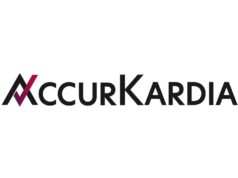 HeartBeam has announced that its “groundbreaking” synthesised 12-lead electrocardiogram (ECG) successfully met the clinical endpoints in the VALID-ECG pivotal study. Thomas Deering (Piedmont Heart Institute, Atlanta, USA) presented these data during the recent Heart Rhythm Society (HRS) annual meeting (24–27 April 2025, San Diego, USA).
HeartBeam has announced that its “groundbreaking” synthesised 12-lead electrocardiogram (ECG) successfully met the clinical endpoints in the VALID-ECG pivotal study. Thomas Deering (Piedmont Heart Institute, Atlanta, USA) presented these data during the recent Heart Rhythm Society (HRS) annual meeting (24–27 April 2025, San Diego, USA).
The VALID-ECG pivotal study was a multicentre trial that enrolled 198 patients across five clinical sites in the USA, including Allegheny Health Network, Atlanta Heart Specialists, Mount Sinai Hospital, Northwell Health and Piedmont Heart Institute.
The study evaluated the mean difference in ECG intervals and amplitudes between HeartBeam’s synthesised 12-lead ECG and simultaneously collected standard 12-lead ECG that are important in assessing non-life-threatening arrhythmias. Data showed a 93.4% overall diagnostic agreement, indicating that HeartBeam’s synthesised 12-lead ECG can support diagnosis of arrhythmias in a manner consistent with standard 12-lead ECGs, as claimed in a company press release.
“This important milestone successfully confirms that our novel technology can deliver diagnostic insights similar to a standard 12-lead ECGs for arrhythmia assessment,” said Robert Eno, chief executive officer (CEO) of HeartBeam. “The ability to deliver 12-lead ECG-like data through a credit card-sized device that patients can use whenever and wherever arrhythmia symptoms occur underscores our long-term vision of bringing advanced cardiac health insights beyond medical facilities to improve patient outcomes.”
HeartBeam’s patented 3D ECG technology captures the heart’s electrical signals in three non-coplanar directions and then synthesises these signals into a 12-lead ECG using a personalised transformation matrix. Data from the VALID-ECG study formed the basis of the US Food and Drug Administration (FDA) application for the 12-lead ECG synthesis software submitted by HeartBeam in January 2025.
The company plans to initiate commercialisation upon receiving US FDA clearance for the 12-lead ECG synthesis software. In advance of that, HeartBeam recently commenced an early access programme to obtain important feedback on the end-to-end clinical workflow, ensure operational readiness and establish an early adopter funnel in anticipation of US commercialisation.
Recently, HeartBeam also announced a strategic collaboration with AccurKardia—an innovator in ECG-based diagnostics technology—bringing together two leaders in ambulatory ECG recording and analysis. The initial collaboration aims to enhance the accessibility of cardiac monitoring solutions and will focus on making AccurKardia’s US FDA-cleared ECG analysis software, AccurECG, available on HeartBeam’s devices.
“We believe combining AccurKardia’s device‑agnostic, FDA‑cleared automated ECG analytics with HeartBeam’s novel credit card‑sized device will be a true gamechanger that empowers patients to take charge of their cardiac health, wherever they are. By uniting our strengths, we’re creating a best‑in‑class platform that transforms how cardiac arrhythmia conditions are monitored and detected,” commented Juan Jimenez, co-founder and CEO of AccurKardia. “Putting clinical-grade ECG insights directly into a patient’s pocket aims to meaningfully address the increasing lack of access to cardiology specialists in the USA.”









